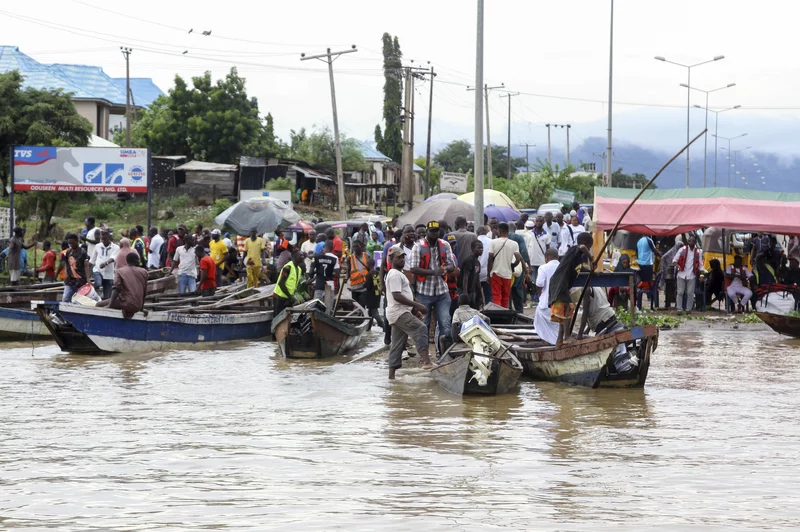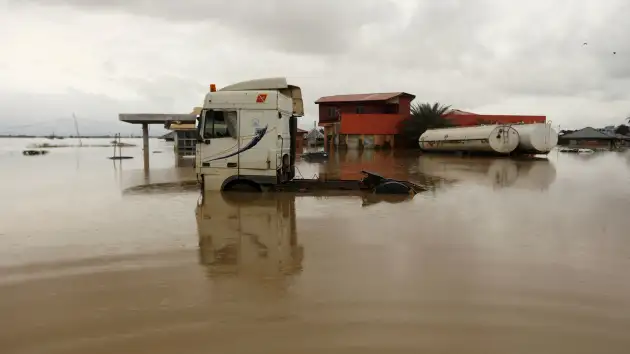
Kyla Brown | Head Editor
October 21, 2022
Over 1.4 million people have been displaced so far in the worst flooding Nigeria has seen in over ten years. More than 600 people have died and an estimated 2,400 have been injured. Abnormal rainfall and the release of excess water from a dam in Cameroon are reportedly to blame for the disaster, which has had an impact on all but five of 36 Nigerian states at this point. Entire communities are now completely submerged, and aid has not yet been able to reach thousands of people who are taking refuge on dry land.
On top of being responsible for mass displacement, floods in Nigeria have put large areas of farmland underwater, creating fears of heightened prices and increased food insecurity. On October 14, the Humanitarian Affairs Ministry announced that 12,000 metric tons of food and other items had begun to be distributed by the Nigerian government to communities devastated most by the flooding. Senior Daniela Gomez said that “Not enough people are aware of this situation globally, and it is preventing Nigeria from receiving adequate aid,” and the lack of aid is evident as Nigerian officials struggle to get relief for the hundreds of thousands of evacuees.
The Nigerian Minister of Humanitarian Affairs and Disaster Management, Sadiya Umar Farouq, called for the evacuation of people living by water channels and areas that could block water flow. Though the floods were forecasted, she claimed several states did not properly prepare for the impact they would have.

Floods continue to be a natural hazard in Nigeria, and every rainy season floods have proven to be detrimental to Nigerian infrastructure and overall life. During the rainy season, dams burst and major rivers often flood their banks; an issue that is worsened by Nigeria’s poor drainage systems, poor waste management, and unregulated urban expansion. Floods have been able to cause so much damage in Nigeria largely because of the insufficient implementation of laws and institutional failures that can be seen in Nigeria’s government, questioning the state’s sovereignty and the government’s ability to keep people within its borders safe.
Climate change has also proven to play a role in making flooding worse, with increased flooding in recent years because of a rise in sea levels. These floods have had negative impacts on various aspects of Nigeria, with the economy, public health, ecosystems, agriculture, and infrastructure all taking serious hits. There is a growing concern that rising sea levels will cause some villages to be completely lost.
Senior Kayla Shanafelt said she “[hopes] that this flooding will cause the Nigerian government and governments globally to pay attention to the signs and be better prepared for any natural disasters in the future,” a sentiment largely shared by people witnessing the scale of destruction the flooding has inflicted.

Leave a Reply